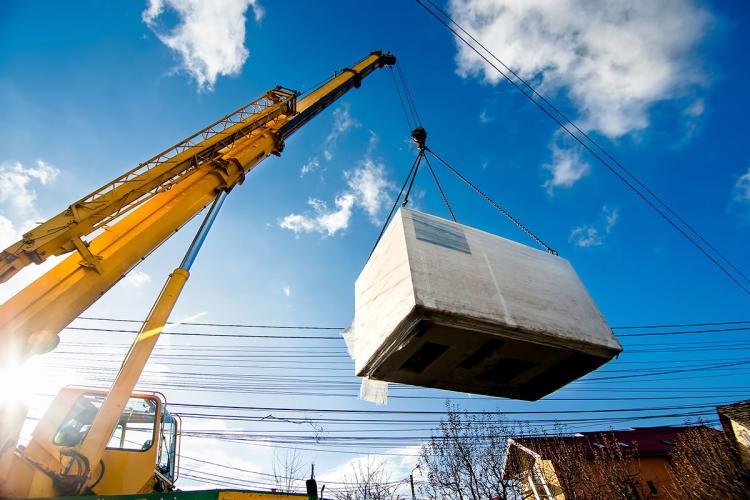
Offsite is a vital tool that will make the construction landscape more resilient, efficient and sustainable, writes Angela Mansell
We've all said it: building 300,000 new homes a year is impossible to achieve and now, thankfully, the Levelling Up, Housing and Communities Committee agrees.
Its report states: "Without urgent action, the government will fail to achieve its national housing target of building 300,000 net new homes per year by the mid-2020s." But this should come as no surprise, as we've been falling short of the targets since 1953.
So, what does this tell you? Simply, things have got to change. If we keep approaching and undertaking everything the way we always have, then we're never going to get anywhere. As Einstein said, the definition of insanity is doing the same thing over and over and expecting different results.
It's time for a different approach.
Sadly, at the root of it all is a stark disconnect between off-site specialists and the broader construction process. There are too many siloed operators that do not want to collaborate, and herein lies the problem. We need to play to our strengths and accept that there are cases where a specialist may be better qualified than the main contractor to advise on or deliver an element of a scheme. And they should be asked for their expert advice much earlier in the process.
While some might be unwilling to admit it, it's well known that plenty of 'copy and paste' specification goes on and the old 'if it ain't broke, then don't try to fix it' adage is no longer fit for purpose; something doesn't have to be broken to be made better. To me, it's attitudes and behaviours that need to change.
"Off-site methods have the potential to revolutionise the industry and help us meet (and dare I say, exceed?) that 300,000 target over time"
In my opinion, a specialist contractor needs to be involved at the concept design stage and supply-chain relationships need to shift from being transactional to collaborative. This way, schemes will be delivered in partnership, with everyone working together towards the same goal rather than their siloed part of the jigsaw.
With off-site construction, for example, panelised systems can be used alongside traditional methods to speed up the process, with the result being faster occupation of those homes: up to 50% quicker, 30% lighter on average and offering 25% waste reduction. The pros most definitely outweigh the cons and benefits like this no doubt appeal to all stakeholders in some capacity.
What's also concerning, is the growing skills shortage and the impact that's having on the industry. The optimist in me believes that the departing operatives who are moving to pastures new will coincide with the growing uptake of off-site construction, thus resulting in a win-win solution for off-site MMC (modern methods of construction), such as panelised systems.
Because they are redefining how we build, the old guard will be replaced by younger workers more open to trying new things. This would be a timely development, as traditional construction methods simply cannot solve the housing crisis anymore. Off-site methods have the potential to revolutionise the industry and help us meet (and dare I say, exceed?) that 300,000 target over time.
"A specialist contractor needs to be involved at the concept design stage and supply-chain relationships need to shift from being transactional to collaborative"
In the hustle to meet quantity targets though, we mustn't overlook quality. We need to build homes that not only serve immediate needs, but also stand up to future expectations. That's where off-site construction comes into play, giving us a consistent way to meet stringent requirements, such as the government's Future Homes Standard. We're talking about homes that are sustainable, energy efficient and built to last. What we don't want to build are the retrofits of the future.
We do, however, need to get better at explaining the immense potential of off-site panelised systems. We have a chance to reshape our industry to make it more sustainable and efficient. To achieve that, we need everyone to understand and be on board with the change. We need to tell the right story and convince the sceptics.
Just as it has been crucial in the renewable energy sector, government support could make a significant difference in promoting off-site construction. Incentives and supportive legislation can help encourage the wider adoption of off-site panelised systems, making them a more viable and attractive method to meet our housing targets sustainably and affordably.
When done right, specialist off-site services are extremely potent services that can help the industry meet its targets – not just the homes aim, but net zero, too. With hard work, grit and an openness to do things differently, we'll be able to make good on our civic duty to ensure everyone has a safe and comfortable home.
We're ready to embrace these changes and look forward to an exciting future for the housing industry.
Angela Mansell, managing director, Mansell Building Solutions
Original source: Inside Housing - Comment - We need a drastic step-change in the approach to new home construction
Stay in touch: